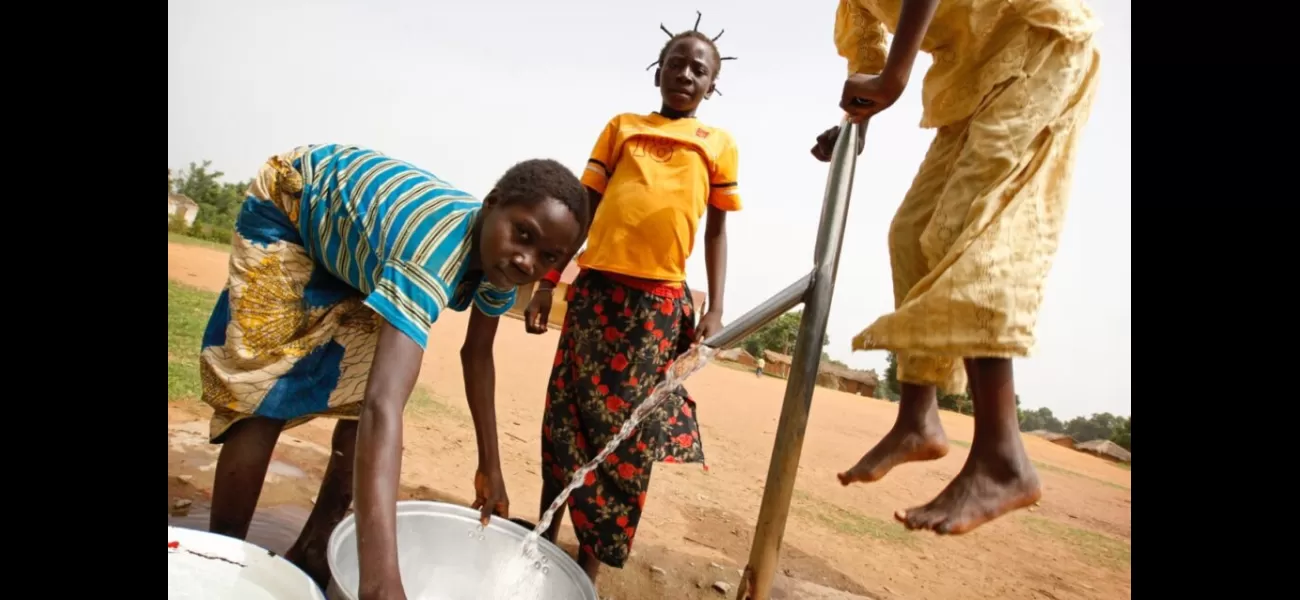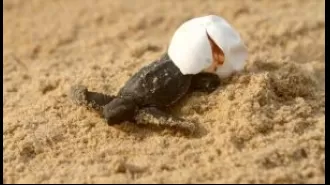An American company is said to be profiting from diverting Senegal's water.
An investment firm is reportedly using Senegal's sole lake to water crops that will be exported overseas.
April 2nd 2024.

According to a report by Bloomberg, there is a controversial venture taking place in the dry landscapes of West Africa that has caught the attention of the world. In this region where water is considered as precious as gold, a company is making use of Senegal's only lake to grow crops that will be exported to other countries, raising concerns about the ethical considerations of exploiting resources. The situation in coastal Dakar is dire, with barely any water coming out of taps, while this investment company is using Lake Guiers to irrigate crops near Saint-Louis, causing worries about the country's water security and the impact on local communities.
The company behind this venture is African Agriculture Inc., a New York City-based corporation that has set a goal of cultivating 300 hectares of alfalfa within the Ndiael Special Wildlife Reserve. This ambitious project relies heavily on Lake Guiers, which is the primary source of freshwater in Senegal. However, as reported by Bloomberg, this lake is already under pressure, providing half of Dakar's water needs and leaving over a million people struggling to access running water, especially at night.
In defense of their actions, CEO Alan Kessler stated that their focus is on sustainable development and economic growth. He argued, "We sit at the end of the Senegal River. The alternative is the water goes out to the ocean," while also mentioning plans for expansion and infrastructure development that could benefit the region. However, critics, including locals and environmentalists, question the morality of exporting valuable resources while leaving communities without basic necessities.
This controversy is not limited to the local level; it reflects a global trend of corporations prioritizing profits over addressing the challenges of climate change. Large companies are increasingly targeting African farmland, creating a competition for water resources between urban areas and agricultural interests. In Senegal, a World Bank report has warned of an impending water crisis, with demand expected to surpass supply in the coming years.
Ousmane Aly Pame, an English literature professor at Cheikh Anta Diop University in Dakar, shared his thoughts on the matter, stating, "And for what? So a foreign company can sell alfalfa to feed cows and racehorses in Saudi Arabia?" He also runs a nonprofit organization focused on combating desertification along the Senegal River, adding, "Extracting resources and leaving Africans with no food and no future is exactly what happened in colonial times."
Adding to the complexity of the situation is the history of African Agriculture's founder, Frank Timis. With a controversial track record of resource deals across Africa, Timis's involvement raises concerns about transparency. From oil exploration to mining ventures, his projects have often been accused of corruption and causing environmental damage.
Furthermore, questions have been raised about the manner in which African Agriculture acquired rights to operate within the Ndiael Reserve. Local residents and government officials were caught off guard by the company's sudden presence, highlighting issues of land ownership and community engagement. As a result, herders who rely on the reserve's resources for their livelihoods are now facing displacement and restricted access to water and grazing lands.
The impact of the alfalfa farm on the environment is another cause for concern. Lake Guiers, already affected by pollution from nearby sugar cane plantations, now faces further degradation from agricultural runoff. With climate change models predicting increased precipitation followed by prolonged droughts, the risk to the lake's ecosystem and surrounding communities is heightened.
Despite these challenges, African Agriculture remains determined to pursue their profit-driven goals. With plans to export alfalfa to lucrative markets in the Middle East, the company sees Senegal's water as a valuable asset. However, for those who are on the frontlines of the water crisis, such as the residents of marginalized neighborhoods in Dakar, access to clean water remains a daily struggle, exposing the stark inequalities present in the global economy.
As the debate continues, the future of Senegal's water resources hangs in the balance.
The company behind this venture is African Agriculture Inc., a New York City-based corporation that has set a goal of cultivating 300 hectares of alfalfa within the Ndiael Special Wildlife Reserve. This ambitious project relies heavily on Lake Guiers, which is the primary source of freshwater in Senegal. However, as reported by Bloomberg, this lake is already under pressure, providing half of Dakar's water needs and leaving over a million people struggling to access running water, especially at night.
In defense of their actions, CEO Alan Kessler stated that their focus is on sustainable development and economic growth. He argued, "We sit at the end of the Senegal River. The alternative is the water goes out to the ocean," while also mentioning plans for expansion and infrastructure development that could benefit the region. However, critics, including locals and environmentalists, question the morality of exporting valuable resources while leaving communities without basic necessities.
This controversy is not limited to the local level; it reflects a global trend of corporations prioritizing profits over addressing the challenges of climate change. Large companies are increasingly targeting African farmland, creating a competition for water resources between urban areas and agricultural interests. In Senegal, a World Bank report has warned of an impending water crisis, with demand expected to surpass supply in the coming years.
Ousmane Aly Pame, an English literature professor at Cheikh Anta Diop University in Dakar, shared his thoughts on the matter, stating, "And for what? So a foreign company can sell alfalfa to feed cows and racehorses in Saudi Arabia?" He also runs a nonprofit organization focused on combating desertification along the Senegal River, adding, "Extracting resources and leaving Africans with no food and no future is exactly what happened in colonial times."
Adding to the complexity of the situation is the history of African Agriculture's founder, Frank Timis. With a controversial track record of resource deals across Africa, Timis's involvement raises concerns about transparency. From oil exploration to mining ventures, his projects have often been accused of corruption and causing environmental damage.
Furthermore, questions have been raised about the manner in which African Agriculture acquired rights to operate within the Ndiael Reserve. Local residents and government officials were caught off guard by the company's sudden presence, highlighting issues of land ownership and community engagement. As a result, herders who rely on the reserve's resources for their livelihoods are now facing displacement and restricted access to water and grazing lands.
The impact of the alfalfa farm on the environment is another cause for concern. Lake Guiers, already affected by pollution from nearby sugar cane plantations, now faces further degradation from agricultural runoff. With climate change models predicting increased precipitation followed by prolonged droughts, the risk to the lake's ecosystem and surrounding communities is heightened.
Despite these challenges, African Agriculture remains determined to pursue their profit-driven goals. With plans to export alfalfa to lucrative markets in the Middle East, the company sees Senegal's water as a valuable asset. However, for those who are on the frontlines of the water crisis, such as the residents of marginalized neighborhoods in Dakar, access to clean water remains a daily struggle, exposing the stark inequalities present in the global economy.
As the debate continues, the future of Senegal's water resources hangs in the balance.
[This article has been trending online recently and has been generated with AI. Your feed is customized.]
[Generative AI is experimental.]
0
0
Submit Comment





